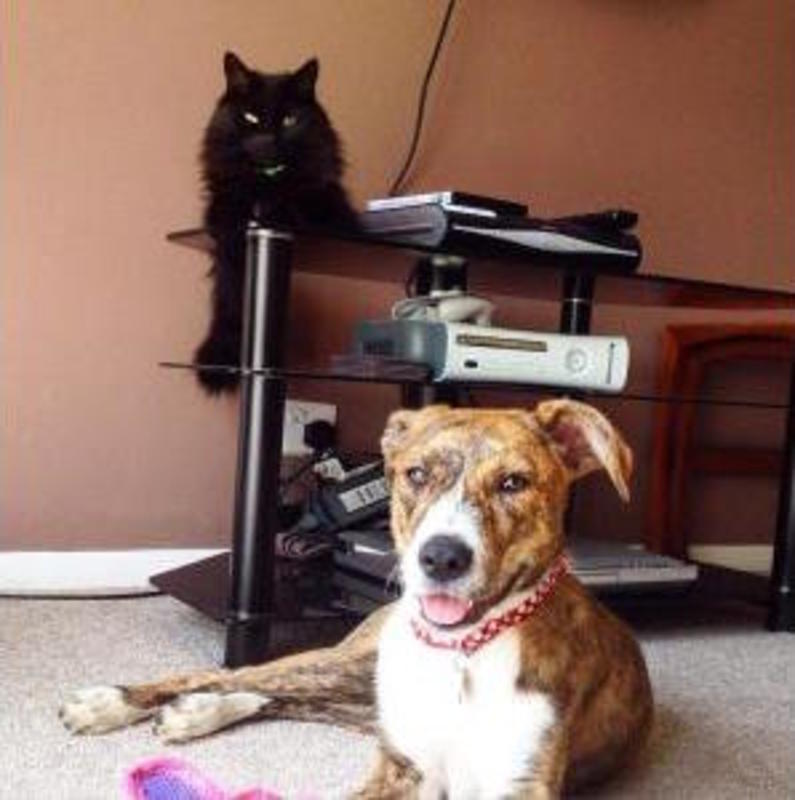Dental Disease is common in cats and dogs and as part of the national pet DENTAL MONTH we are offering FREE nurse consults to check your cat or dogs teeth and to discuss dental care. If your pet does require a dental for this month only you get 10% off your pet's anaesthetic and the dental procedure. For further information please see below:
What is dental disease? "Dental Disease is the inflammation of the structures that support teeth, the gum tissue, periodontal ligament, alveolus (small cavity) and cementum. It is one of the most common infectious diseases in the world in dogs and is caused by bacteria that make up plaque." RSCPA.org.uk
What is dental disease? "Dental Disease is the inflammation of the structures that support teeth, the gum tissue, periodontal ligament, alveolus (small cavity) and cementum. It is one of the most common infectious diseases in the world in dogs and is caused by bacteria that make up plaque." RSCPA.org.uk
There are many reasons why your pet needs an annual health check - examining your pet's mouth and teeth is just one of them - this is important if we are to detect early signs of a problem. Getting your pet used to having their teeth brushed from an early age is the best way to get them to accept their teeth being brushed. But even as adults it is possible to teach them to allow you to brush their teeth.
Toothpaste! Finding a pet toothpaste that your pet likes is the first step. There are a number of flavours to try - mint, poultry or even beef flavours. First step is to simply let them lick it off your finger. It's important to use a pet toothpaste as human toothpastes have fluoride and foaming agents in them which could upset your pet's stomach.
Getting used to brushing for the first time! It is important to do this slowly so your pet accepts you firstly touching round their face; lifting their lips so you can look at their teeth; allow you to put your finger under their gums gradually building up from the teeth at the front of the mouth to all the teeth; accepting a finger brush (not always suitable for medium to large size dogs in case if ingestion) or a pet toothbrush. All these steps need to be gradually built up.
How often should I brush my pet's teeth? The gold standard to help keep your pet's mouth healthy is daily brushing. Unlike humans, we can pair these events with a favourite treat even if it is before bedtime! Do this during the training and established tooth brushing times.
What if I can't brush my pet's teeth? If you have to fight with your pet to have their teeth brushed please come to us for advice. We can help you with retraining them or give you alternative methods for keeping their teeth clean. Give them plenty of TLC during and after the tooth brushing session to keep their trust in you and the toothbrush.
Top Tip! Leave the brushing until your pet is having he or her quiet time - this should be a nice experience for them but not a game.
What are the signs of dental problems? Regular tooth brushing is a great way to establish what is normal for your pet's mouth. You can spot abnormalities such as tartar build up, gum inflammation or even growths in your pet's mouth. If you spot any of these things or any of the following them please let us check your pet's mouth.
- bad breath
- broken or loose teeth
- extra teeth or retained baby teeth
- teeth that are discolored or covered in tartar
- abnormal chewing, drooling, or dropping food from the mouth
- reduced appetite or refusal to eat
- pain in or around the mouth
- bleeding from the mouth
- swelling in the areas surrounding the mouth
Some pets become irritable when they have dental problems, and any changes in your pet’s behaviour should prompt a visit to your vet. Always be careful when evaluating your pet’s mouth, because a painful animal may bite. (AVMA.org)
Useful information to help you: We like the this dental care leaflet produced by the AVMA, click here. But also these YouTube videos to show you how to brush your pet's teeth.
- How to Brush your Cat's Teeth, by Cole and Marmalade, click here.
- How to Brush your Dog's Teeth, by AVMA, click here.
Book an appointment! Nurse appointments are available throughout the week at Braintree. To book an appointment or speak to a member of our nursing team, ring 01376 325511 or book on-line click here. If you have a cat they you can also take advantage of our Cat Only Clinic at Coggeshall, every Tuesday morning from 11am, these appointments can not be booked online, so please ring us.

